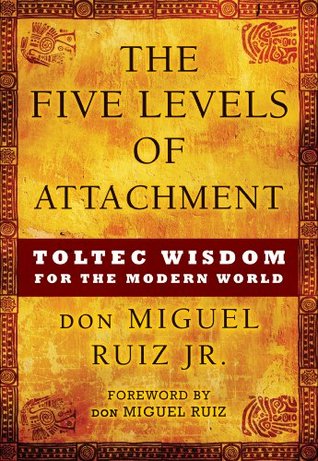More on this book
Community
Kindle Notes & Highlights
Read between
January 20 - January 22, 2022
Knowledge exists only because we are alive, and our will is the bridge between knowledge and ourselves in the form of our choice between yes and no.
Who am I? This is one of the most important questions on the spiritual path. The answer cannot be put into words, yet I know that I exist.
If we choose to remain attached to something that brings us pain, it is because that thing also comforts us in some way.
our minds react to familiar patterns even though we have received incomplete information.
Seeing our attachments for what they are allows us to see that an assumption is merely one possibility.
The quest for truth, on the other hand, is the desire to discover—regardless of whether our beliefs are supported in the process.
As I became aware of my attachment to being right, my need to convince them to see it from my point of view was reflected back to me.
self-confidence is being able and willing to question your own beliefs.
Questioning ourselves and being open to changing our minds about something does not mean that we must question our core being.
Ask yourself, Where did I learn that belief? How is that belief affecting me? Am I using that belief well? Do I still need that belief?
we can choose to be aware that what works one day may not work the next.
Sometimes we think that the only way to make someone a better person, and, by extension, make the world a better place, is to convince them that they should see things our way.
When we think that we know more or better than someone else, we are setting ourselves up for a clash of beliefs.
Once the attachment to the belief outweighs the importance of the message, it corrupts the idea; respect is lost, and freedom is compromised. Without respect for the freedom of choice, peace is not possible.
There are seven billion people living in our world, and so there are seven billion different points of view. If we each insisted that only our point of view is valid, then we would also have seven billion clashes in our world.
We do not need to defend ourselves or our beliefs against other people's opinions and beliefs. Our only need is self-respect.
Sometimes we choose to devote a portion of our life to a cause or a movement, and sometimes we choose not to. Having awareness, however, will let us know if our personal importance begins to corrupt the essence of whatever activity we have chosen to engage in. If we find ourselves vehemently defending our position or cause, it means our attachment has crowded out our awareness.
There comes a point in life when we grow tired of needing to be right—especially when we see how this ego-feeding need affects our relationships with people who just want to be our friends, with the beautiful souls who just wanted to love us.
What triggers those emotions may not be real.
The trigger was an illusion, but I still felt the emotions.
Are we aware of the triggers? Do we know if the trigger is based on reality or if it is based on faulty information?
Whenever I'm upset, I know that something I hold to be true has been put to the test.
Uncomfortable emotions are like car alarms: they let us know there is a problem to attend to, a wound for us to work on, thus allowing us to see our own truth.
It is not easy letting go, especially when the things we believe about ourselves (even those that cause us pain) provide a familiar comfort zone.


